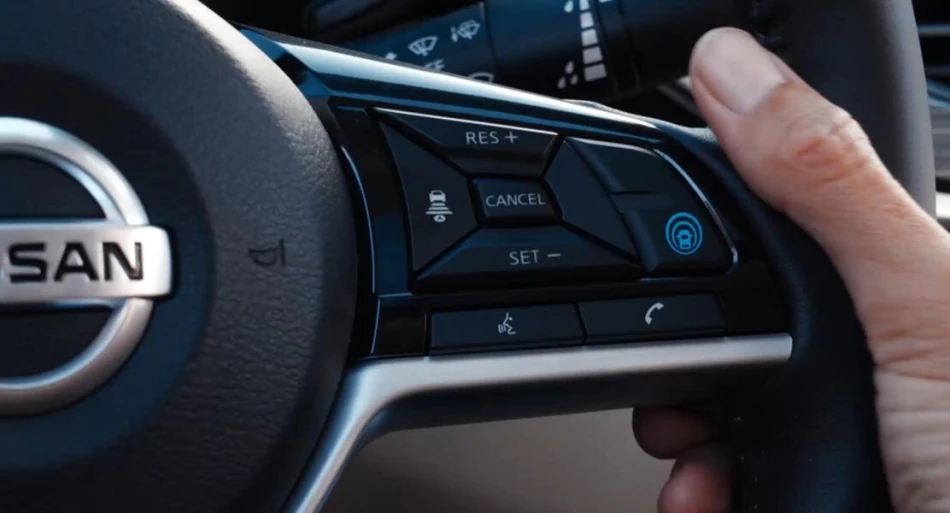
Nissan Unveils Upgraded ProPILOT Autonomous Driving System for Enhanced Driver Assistance
Nissan Bets Big on AI Partnership to Challenge Tesla's Self-Driving Dominance
Nissan is making a bold play to catch up in the autonomous driving race, partnering with British AI startup Wayve to launch an advanced driver assistance system by 2028. The Japanese automaker claims its next-generation ProPilot technology will match Tesla's Full Self-Driving capabilities while using fewer cameras and sensors. But with China racing ahead in robotaxi deployment and regulatory hurdles mounting globally, Nissan faces an uphill battle to reclaim relevance in the self-driving space.
The Partnership That Could Change Everything
Under new CEO Ivan Espinoza, Nissan is rebuilding its business around cutting-edge technology that customers actually want. The centerpiece of this strategy is a partnership with Wayve, a SoftBank-backed AI company that's bringing a fresh approach to autonomous driving.
Unlike previous ProPilot versions that only worked on highways, the new system will handle complex city streets. Tetsuya Iijima, Nissan's general manager for driver assistance technology, made a striking claim: "We believe our system is smarter than Tesla FSD, but it's not at the same level of product quality."
That's a telling admission. Nissan acknowledges Tesla's edge in execution while betting that superior AI can eventually win out.
Why This Partnership Matters
This marks the first time a major automaker has integrated Wayve's AI technology into production vehicles. Wayve is also expanding to Japan, opening a testing center in Yokohama as its fourth global location after the UK, US, and Germany.
The timing isn't coincidental. Japan's aging population and shrinking workforce have created a taxi driver shortage, making autonomous ride-sharing services increasingly attractive. Nissan plans to launch such a service by 2027.
The China Problem
Here's where things get uncomfortable for Japanese automakers. While Nissan prepares for 2028, Chinese companies are already operating driverless taxi services in Beijing and Shanghai. Companies like Baidu's Apollo Go and Pony.ai offer Level 4 autonomous capabilities at commercial scale.
Chinese firms aren't stopping at home either. They're expanding into the Middle East and other markets, backed by massive government investment and supportive regulations. This puts China at the forefront of the global robotaxi market while Japanese companies play catch-up.
The contrast is stark. Nissan's first ProPilot system launched in 2016 with basic lane-keeping and distance control. The second generation added hands-free highway driving in 2019. Meanwhile, Chinese competitors have leapfrogged to fully autonomous urban operations.
Regulatory Reality Check
Japan's strict regulations require human supervision for all vehicles, creating another hurdle for autonomous development. This regulatory caution, while prioritizing safety, puts Japanese companies at a disadvantage compared to China's more permissive testing environment.
Even Toyota, Japan's largest automaker, recently partnered with Waymo to explore autonomous driving software opportunities. This suggests the entire Japanese auto industry recognizes it needs outside help to compete.
Market Implications and Investment Reality
Despite billions in investment across the industry, true Level 5 autonomy remains elusive. Most current systems, including Tesla's FSD, still require human oversight and intervention. They operate at Level 2 autonomy, meaning drivers must stay alert and ready to take control.
For investors, Nissan's partnership represents both opportunity and risk. Success could restore the company's technological credibility and open new revenue streams through ride-sharing services. Failure could cement its position as a follower rather than a leader in automotive innovation.
The partnership also highlights how traditional automakers increasingly depend on tech startups for critical capabilities. This shift raises questions about where value creation will occur in the automotive industry's future.
The Human Factor
During a prototype test drive in Tokyo last week, Iijima emphasized the technology's human-like awareness of surrounding conditions. "I think this technology will change people's lives," he said.
That optimism reflects Nissan's broader bet on AI-powered differentiation. But the company faces formidable challenges. Tesla has years of real-world data collection advantage. Chinese competitors have regulatory support and massive scale. And consumer trust in autonomous systems remains fragile after high-profile accidents.
Nissan's success will depend on whether Wayve's AI approach can deliver the reliability and performance needed to compete with established players. The 2028 timeline gives the partnership four years to prove itself—a reasonable timeframe in automotive development cycles, but potentially too slow in the fast-moving AI landscape.
The stakes couldn't be higher. Getting autonomous driving right could secure Nissan's future. Getting it wrong could leave the company further behind in an industry increasingly defined by software capabilities rather than traditional manufacturing expertise.
Most Viewed News

 Omar Rahman
Omar Rahman






